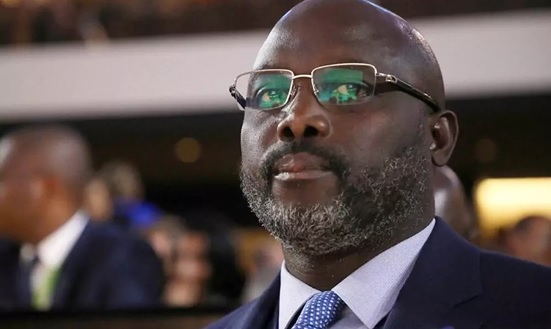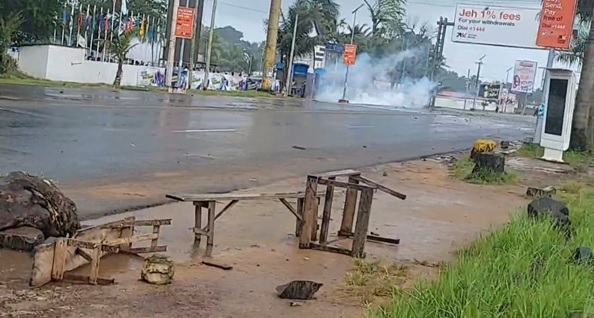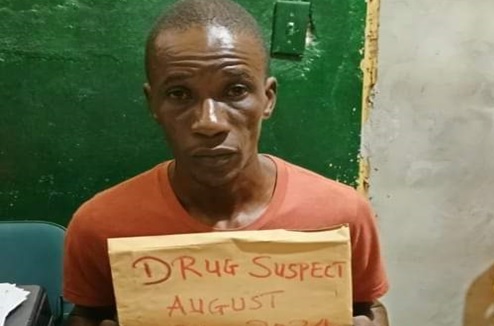MONROVIA – In a forceful appeal to the Economic Community of West African States (ECOWAS), former Liberian President George Weah has condemned the administration of President Joseph Boakai for what he describes as a systematic campaign to undermine democracy and suppress political opposition in Liberia. Weah’s letter, addressed to E. Omar Alieu Turay, President of the ECOWAS Commission, and dated August 23, 2024, alleges a series of grave violations committed by the Boakai administration, culminating in a violent raid on the headquarters of Weah’s party, the Coalition for Democratic Change (CDC), on August 22, 2024.
According to Weah, this latest incident was far from an isolated event but part of a deliberate and escalating strategy to intimidate the CDC and its supporters. He described the raid, carried out under the pretext of a drug operation, as an “unprovoked attack” that marks the continuation of a troubling pattern by the Boakai administration to stifle political dissent. Weah emphasized that the attack on the CDC headquarters was not the first of its kind. On August 5, 2024, security forces allegedly stormed the same premises, heavily armed and without proper legal justification, breaking into the compound and terrorizing those inside.
Weah asserts that these actions were carried out under direct orders from President Boakai, whom he accuses of seeking to dismantle the CDC’s capacity to challenge his government effectively. “As former leaders of the country, we know that these brazen acts of aggression are under the instruction of President Joseph Boakai himself,” Weah wrote, “who has said that he intends to diminish the CDC’s ability to mount any meaningful political fight in the future.” This, he argued, is a stark betrayal of the democratic principles that Liberia has worked hard to establish.
The former president painted a grim picture of the August 22 raid, describing a scene where security forces fired hundreds of lethal and non-lethal rounds at unarmed civilians. According to Weah, these civilians’ only “crime” was their loyalty to the CDC, suggesting that the Boakai administration views political allegiance as grounds for violent reprisal. He decried the conflicting statements from various government security agencies about the reasons for the raid, viewing this as a clear attempt to obfuscate the real motives behind the operation.
Beyond the raids, Weah accused the Boakai administration of a wider campaign of political persecution, alleging that civil servants who are perceived to be sympathetic to the CDC have been systematically harassed and removed from their positions. He highlighted the use of excessive force against unarmed civilians, noting that these actions have resulted in several deaths and a chilling effect on free expression and political participation.
Weah’s letter also points to what he sees as the Boakai administration’s disregard for the rule of law, citing the non-prosecution of election-related killings that were captured on camera, and the flouting of tenure laws despite rulings from the Liberia Supreme Court. He accused the administration of using prosecutorial powers as a political weapon and violating procurement and other statutory laws in broad daylight.
In a scathing indictment of President Boakai’s leadership, Weah argued that instead of fostering national unity and healing after a contentious election, Boakai has been consumed by the desire to consolidate power at all costs. “President Boakai has apparently been overtaken by absolute power, and we know where that leads as our history is replete with examples,” Weah warned, referring to Liberia’s turbulent past marked by civil conflict and authoritarian rule.
Weah urged ECOWAS to intervene proactively in Liberia to prevent a further erosion of democracy. He highlighted the recent rollback of democratic constitutional rule in the West African region, arguing that ECOWAS must act now to safeguard Liberia’s fragile democracy from the “misuse of power by the current regime.” He noted that President Boakai’s recent statement to legislators about erasing the CDC from Liberia’s political map was particularly alarming and indicative of his broader authoritarian ambitions.
“We make it abundantly clear that the party is here to stay and will continue to remain a vibrant political force,” Weah declared, underscoring the CDC’s resolve to resist any efforts to undermine its existence. He called on ECOWAS to convey a stern message to the Boakai administration: “As we strive to maintain the peace of the country, we will not tolerate our rights being abused.”
Weah’s letter reflects the growing tensions in Liberia, where political divisions have deepened since the last election. His appeal to ECOWAS emphasizes the urgency of addressing the situation before it spirals out of control. The international community is watching closely, and many are calling for dialogue and reconciliation to ensure that Liberia does not return to its darker days of conflict and instability.







